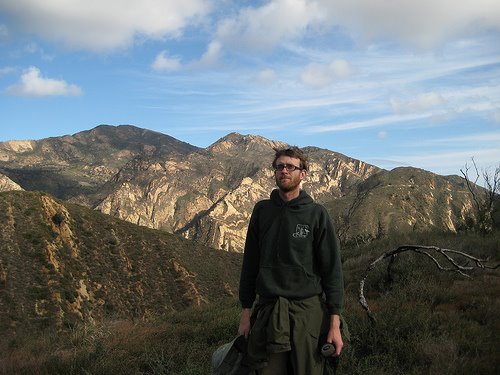Well, we are now in Lafayette, Louisiana, the heart of Cajon country (or so their chamber of commerce says anyway). In any event, the food is delicious and I have been eating a LOT of it. The gumbo, seafood, etc, here is SO much better than it is in California (which I guess isn't surprising). I didn't photograph any food though.
Getting back to Texas... This morning we drove through downtown Galveston, which was by the way under 6 feet of water when Hurricane Ike came through last year.

There were lots of dead trees everywhere in downtown. Trees don't like being under 6 feet of saltwater.
left Galveston, and Mrs. Crumpets (my GPS unit, which speaks in an English accent) directed us into the line for a ferry, without telling us! Oops! This ferry took us to the Bolivar Peninsula.

On the way, someone was feeding seagulls, and they repaid the favor by 'decorating' all the cars on the deck of the ferry. In the background there you can see a shipwreck although it looked older than 1 year so maybe Ike didn't wreck that ship.

The Bolivar peninsula is about 20 miles of hurricane wreckage, with a few surrounding houses and debris everywhere. Apparently, it used to have a lot of beach houses on it, but most were destroyed. Barrier islands/peninsulas are not good places to build for just this reason - they are devestated by hurricanes, and the storm surge goes right over the top of them. Nevertheless it was really sad to see all of the destruction to peoples' homes and workplaces.


This is what thunderheads look like in Louisiana. They aren't as crisp and dramatic from afar as the ones in the desert as they hide behind humid hazy air and low clouds. Today we only went through a bit of rain, most of the storms missed us.

Bridge

A green anole, the closer one is a male and the further away one is probably his intended mate. These guys are really neat, they can actually change color between green and brown. I thought I was hallucenating until I verified it on Wikipedia.

A dragonfly.. this guy and the Anoles were just hanging out to welcome us, at the Lafayette Welcome Center.
As I mentioned earlier, we also got yummy Cajon food today, and as always, I went swimming in the hotel pool in the evening. One other thing too - the hotel had a free beer for us when we checked in! Southern hospitality!
